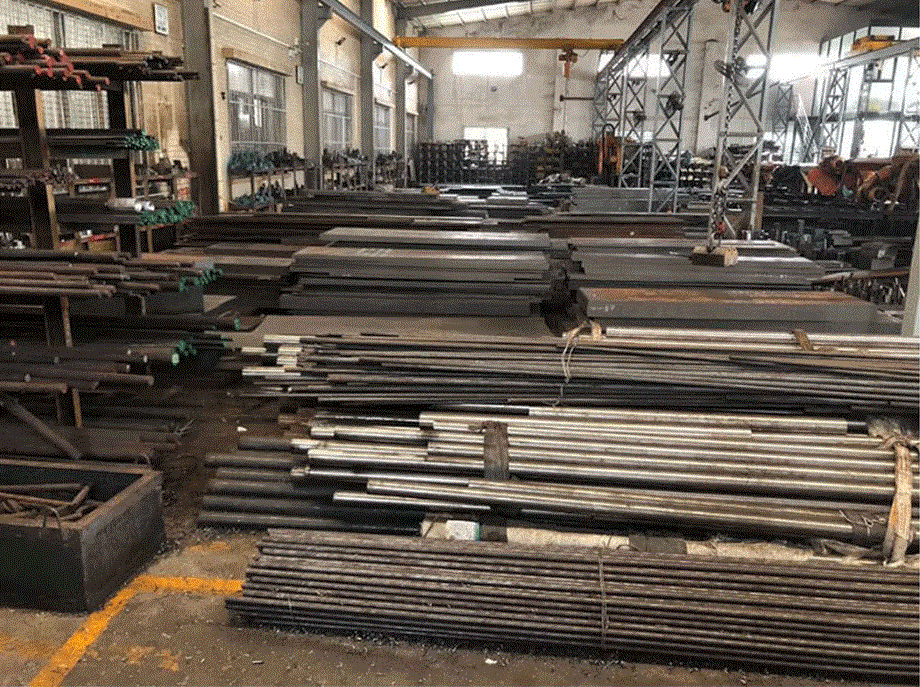Search This Supplers Products:steel wireAlloy Steel BarSteel TubeSpring Steel StripSteel Platespring steel wire
- Home
- About us
- Products
- Faqs
- Steelmaking
- Metal Forming
- Heat Treatment
- Metal Cutting
- Surface Treatment
- Company Policy
- Another Downstream Industry Technology
- Carbon Steel
- Stainless Steel
- Alloy Steel
- Springs Industry
- Cutting Tool Industry
- Tool Steel
- High Speed Steel
- Drill Tool Industry
- Oil and Gas
- Boiler Industry
- Bearing Industry
- Auto Parts Industry
- Fasteners Industry
- Experiment Ways
- Nickel Based Alloy
- News
- Certificate
- Contact us
1.2367 Hot Work Tool Steel

- group name
- Tool Steel Bars
- Min Order
- 1 piece
- brand name
- fushun
- Nearest port for product export
- Tianjin, Qingdao, Shanghai, Huangshi
- Delivery clauses under the trade mode
- FOB, CFR, CIF, CIP, CPT, DDP, DDU, DAF
- Acceptable payment methods
- T/T, L/C, D/P D/A
- update time
- Tue, 23 May 2023 11:04:49 GMT
Paramtents
Process hot rolled or hot forged
Delivery Condtion annealed
Surface Condition smooth, bright
Packging & Delivery
-
Min Order1 piece
Briefing
Detailed
1.2367 Hot Work Tool Steel
Description
Chrome–molybdenum–vanadium steel for hardening in oil and in air with very good hardenability, high firmness during the heat and resistance to the tempering, very good toughness and plastic properties during normal and also higher temperatures. Further the steel has a very good resistance to tearing of thermal fatigue and low sensitivity to quick changes of temperature. This hot work die steel is appropriate for the heat treatment also for firmness over 1800 N/mm2 and for tools cooled by water. It is well-workable during the heat and well-workable in the soft-annealed state. At request it can also be delivered in ESR quality.
Applications:
Wear resisting tools, pressure die casting tools, pressing tools for light and heavy metal. For the highest requirements we recommend ESR or EFS quality.
Quality Standard: BS EN ISO 4957-2000 Tool steels
All Grades Comparison:
ISO | DIN |
X38CrMoV5-3 | 1.2367 |
Chemical Composition(%):
C | Si | Mn | P | S | Cr | Mo | V |
0.35-0.40 | 0.30-0.50 | 0.30-0.50 | 0.030 max | 0.020 max | 4.80-5.20 | 2.70-3.20 | 0.40-0.60 |
HEAT TREATMENT:
FORGING: Hot forming temperature: 1080-900oC.
SOFT ANNEALING: Heat to 800-840oC, cool slowly in furnace. This will produce a maximum Brinell hardness of 235.
STRESS RELIEVING: Stress relieving to remove machining stresses should be carried out by heating to 650oC, holding for one hour at heat, followed by air cooling. This operation is performed to reduce distortion during heat treatment.
HARDENING: Harden from a temperature of 1030-1080oC followed by air, oil or warm bath (500-550oC) quenching. Hardness after quenching is 53-57 HRC.
TEMPERING:
Tempering Temperature (℃) vs. Hardness (HRC) vs. Tensile Stregth (N/mm2)
100℃ | 200℃ | 300℃ | 400℃ | 500℃ | 550℃ | 600℃ | 650℃ | 700℃ |
57 | 55 | 54 | 53 | 55.5 | 56 | 53 | 43 | 31 |
2140 | 1980 | 1910 | 1845 | 2010 | 2050 | 1845 | 1360 | 995 |
Mill′s test certificate:
EN 10204/3.1 with all relevant data reg. chem. composition, mech. properties and results of testing.
